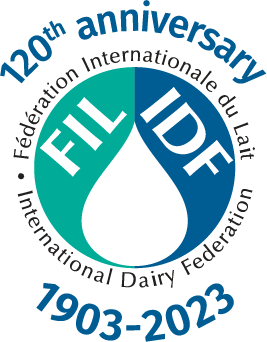Share this page
Alignment with SDGs
AUTHOR
Osamu Suganuma, Japanese National Committee of IDF
Abstract
The Committee for Milk Container Environmental Issues (COMCEI) was established in 1995 to promote the recycling of paper cartons for milk. The group consists of 3 members such as Japan Dairy Industry Association and J-milk , 7 paper carton manufacturers, 118 dairy manufacturers, 13 raw paper suppliers and paper recycler. COMCEI is working with citizens group for the three goals of increasing the recovery rate, correctly communicating environmental characteristics of paper cartons, and encourage the people who consider and act in the environment. Currently in Japan, paper without aluminium is mainly used for cartons , and aluminium make difficuty to be purerify of pulp , so COMCEI is promoting the recycling only paper cartons without aluminum.


COMCEI is promoting activities based on the following policies:
- To value the blessings of nature and help preserve the global environment so that the next generation of children can enjoy peace of mind, we strengthen our collaboration with all parties working in the area of paper carton recycling and promote voluntary activities to improve the collection rate.
- We save resources and reduce the environmental load by utilizing paper cartons, which are renewable sources, as high-quality resources. We continue to communicate the importance of resource conservation via paper carton recycling
COMCEI recommend to our customer “wash, open and dry” and collect them separately from other waste paper. It is the unique Japanese collection method which was proposed and spread by citizens at a time when cartons were never recycled. This way makes used paper cartons into hihigh-valueulp. Japanese consumers are highly conscious and respond to these troublesome requests.
Actions to achieve goal
COMCEI will hold an annual meeting with stakeholders including ministries, local governments, distributors, citizen groups, and recyclers. In addition, hold regional meetings and meetings with paper recyclers to catch local issues of recycling. COMCEI have also “ Paper carton recycling workshop” in elementary schools to raise awareness of paper cartons as a resource item through educational activities for students. In these work shops, lecture forestry management, experience of making post cards using milk carton pulp.
History of Success
The collection rate of paper carton= (Collection volume of domestic paper cartons)/(Amount of base paperboard used for paper cartons for beverages) 19.9% in 1994 to 44.3% in 2018. The collection rate of used paper carton=(Collection volume of used paper cartons)/( Shipping volume of paper cartons for beverages from beverage manufacturers) 13.4% in 1994 to 35.6% in 2018.
With milk production traditionally being a by-product of cattle breeding, turning it into a business which can generate a steady income has been a key strand of the project’s remit. Working with a local partner, a series of training programmes continue to be delivered to the dairy farmers out in the field, including dairy business, milk and hygiene, fodder, feeds and feeding, cooperatives formation and management and herd management.
Next steps
Fluctuations in the price of used paper affect the motivation of recycled paper companies. When the supply of used paper is insufficient, the paper packs are enthusiastically recycled, but when the used paper is over-supplied, the work of the consumer for recycling is wasted. Another is how to recycle the plastics used in laminates and spout other than paper pulp
COMCEI worked on environmental problems of paper cartons when environmental issue was still small. It has contributed to the development of recycling awareness in Japan.
Discussion
Our goal is to build the local dairy sector to increase the income of the individual farmer, and to enable Nigeria to feed a growing population, and based on the success of the programme to date, we are confident in achieving both these ambitions. Next steps are the expansion of the programme in the coming years to include a demonstration and training farm focusing on feed and fodder, calf rearing as well as good farm practices/management to further capacity build local farmers to increase the yield, the efficiency and the profitability of the Nigerian dairy sector
In the near future, we plan for some of our European farmer-owners to visit Nigerian dairy farmers to share knowledge and expertise on good farming practices in Nigeria. Reciprocally, the cooperation will provide European farmers with knowledge about farming in emerging markets and under very different climate conditions. The increase of milk intake and Arla’s experience in dairy products will benefit the Nigerian local dairy market with the introduction of new category/innovation.
Conclusion
From a CSR project starting in 2016, this local dairy development project grew and became an integrated part of the Arla Nigeria business unit. The development of the local dairy value chain industry needs to be commercially viable to be sustainable.
Arla Foods showed leadership, integrity and responsibility to the project since the beginning. We are doing this because we care about the people and the impact we can have on their life. As a learning, a key success factor is strong partnerships. It is Arla ways of working and we have partnered with many strong partners in our emerging markets.
In the near future, we plan for some of our European farmer-owners to visit Nigerian dairy farmers to share knowledge and expertise on good farming practices in Nigeria. Reciprocally, the cooperation will provide European farmers with knowledge about farming in emerging markets and under very different climate conditions. The increase of milk intake and Arla’s experience in dairy products will benefit the Nigerian local dairy market with the introduction of new category/innovation.






